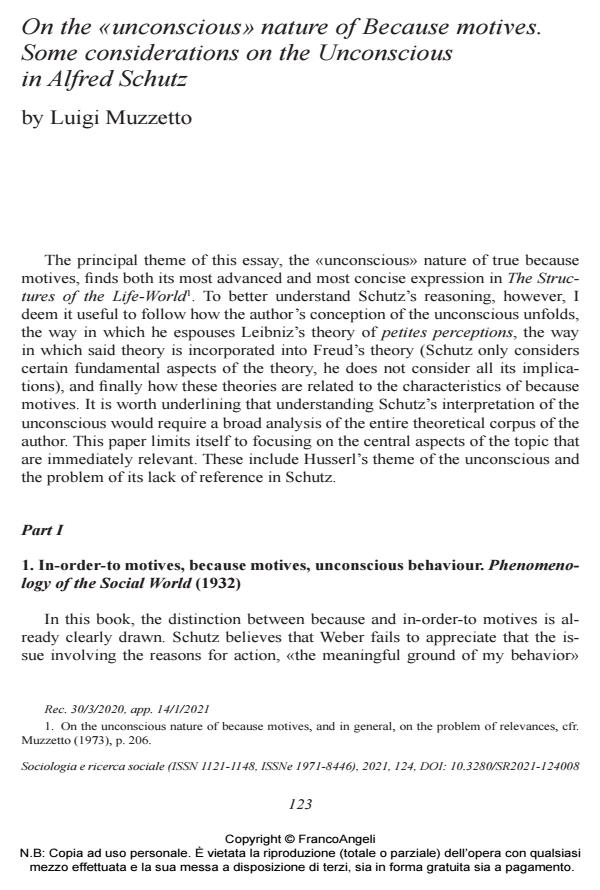On the «unconscious» nature of Because motives. Some considerations on the Unconscious in Alfred Schutz
Titolo Rivista SOCIOLOGIA E RICERCA SOCIALE
Autori/Curatori Luigi Muzzetto
Anno di pubblicazione 2021 Fascicolo 2021/124
Lingua Inglese Numero pagine 21 P. 123-143 Dimensione file 211 KB
DOI 10.3280/SR2021-124008
Il DOI è il codice a barre della proprietà intellettuale: per saperne di più
clicca qui
Qui sotto puoi vedere in anteprima la prima pagina di questo articolo.
Se questo articolo ti interessa, lo puoi acquistare (e scaricare in formato pdf) seguendo le facili indicazioni per acquistare il download credit. Acquista Download Credits per scaricare questo Articolo in formato PDF

FrancoAngeli è membro della Publishers International Linking Association, Inc (PILA)associazione indipendente e non profit per facilitare (attraverso i servizi tecnologici implementati da CrossRef.org) l’accesso degli studiosi ai contenuti digitali nelle pubblicazioni professionali e scientifiche
This paper is divided into two parts. The first traces the conceptual development of because motives, while simultaneously endeavouring to grasp the notion of the unconscious revealed in Schutz’s analysis. The author refers to Leibniz’s theory of petites perceptions and Freud’s theory of the unconscious; theories whose respective characteristics are somehow compared, integrated and thus juxtaposed with the characteristics of because motives. The second part of the paper raises the question why Schutz, in his analysis of motives and unconscious behaviour, does not refer to Husserl’s conception of the unconscious
Luigi Muzzetto, On the «unconscious» nature of Because motives. Some considerations on the Unconscious in Alfred Schutz in "SOCIOLOGIA E RICERCA SOCIALE " 124/2021, pp 123-143, DOI: 10.3280/SR2021-124008